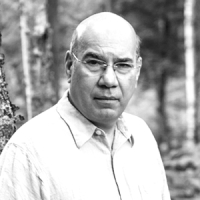At the famous Blue Mosque during a papal visit to Istanbul, Pope Francis stood beside the grand mufti of Istanbul and prayed for two minutes, bowing his head, closing his eyes. At the end of his prayer, the grand mufti whispered aloud: “May God accept it.”
One can’t help wondering: Did the grand mufti doubt that God would accept a prayer from the head of the Roman Catholic Church? Indeed, does Francis, or any Christian, genuinely accept that God is God, whether his name be Allah or God?
As in previous visits to Islamic countries, the busiest pontiff in recent memory had labored mightily in Turkey to bring Islam into dialogue with Christianity: not an easy thing, although both are Abrahamic religions, in theory accepting the notion that God revealed himself to Abraham and his descendants.
ADVERTISEMENT
A long-running argument exists over whether Christians and Muslims worship the same God. In my view, they certainly do. The creator—he or she—brought the world into being. The gender business interferes in odd ways, as the Arabic word for God is apparently quite neutral, whereas God is often seen as masculine in the Judaic tradition, the ultimate patriarch, as in Psalm 89: “Thou art my father, my God.” The situation is complicated by Christianity, where Jesus becomes the son of God, though his equal as well, having a place beside the Holy Spirit as part of a Trinity—with equal weight on each foot of the tripod. (To many outside Christianity, this looks a bit like polytheism!)
Judaism, Christianity, and Islam are firmly monotheistic religions, in fact. This puts them at odds with the countless polytheistic religions, where many gods compete for prominence. The ancient Greeks and Romans were comfortable with any number of deities and were quite open to allowing conquered nations to continue to worship in whatever ways they saw fit, as long as they didn’t mind having an emperor who required taxes and tributes. Jews in ancient Palestine were, under Roman occupation, moderately free to follow their Temple-oriented religion without interference until, a few decades after the death of Jesus, anti-imperial zealots openly rebelled against the empire, drawing the wrath of a vast and well-equipped army on their heads, precipitating the terrible destruction of the Second Temple in Jerusalem in 70 CE.
The God of the Jews was known by various names, including YHWH—the vowels are deliberately missing, although we derive the name Jehovah from this combination of consonants as written in Latin letters. Other names of God were Elohim, and Adonai, although these latter are often seen as reflections of God’s attributes, not separate names. One is, of course, inevitably up against the problem of translation when speaking of names. God is God, but he has various names in different languages, and each strand of monotheistic religion has multiple ways of describing the godhead.
The God of Islam—who has as many as 99 names, all subsumed in Allah—often seems very like the Jewish creator: a remote God, merciful but all-powerful. Allah seems unlikely to enter into a “personal” relationship with Muslims, who readily submit to the divine will. Allah can’t truly be called a male figure in Islam, so “his” doesn’t really work as a descriptor. The God of Israel did indeed enter into dialogue with human creatures, meeting Adam and Eve in Eden, speaking to Moses in the burning bush, demanding sacrifices, issuing commandments. The various writings that eventually made up the Hebrew scriptures—the five books of Moses, the books of the prophets, and the so-called writings—characterized the human relationship with God in complex ways; but it was clearly a relationship.
The Christian God is more available to his followers: the head of a family, as depicted in the roles of father and son, making him appear more human than either the Jewish or Islamic creator. One can approach a father, and Jesus could speak to God as Abba or father, encouraging his followers to do the same, as in the Lord’s Prayer. Jesus offered a way of communicating with God that felt intimate.
There has been, as one might guess, a lot of disagreement about whether Christians and Muslims worship the same God, but Miroslav Volf, a well-known professor at Yale Divinity School, has done a good deal of work on this subject, concluding that both religions “believe in one God, one God who is a sovereign Lord and to whom they are to be obedient. For both faiths, God embodies what’s ultimately important and valuable.” He suggests that it has never been more important for Jews, Christians, and Muslims to understand that they do, indeed, worship the same God and, in fact, “inhabit a common moral universe.”
Pope Francis would seem to agree. He is, in many ways, working to repair damage done by Benedict, the previous pontiff, in his infamous lecture at the University of Regensburg in Germany, where some of his remarks were taken, possibly out of context, to be anti-Islam. As if in reaction, the current pontiff has gone out of his way to forge alliances with Islam, praying that religious tolerance will ultimately prevail in the Middle East.
That is a lot to pray for, but Pope Francis is praying for all of us.





